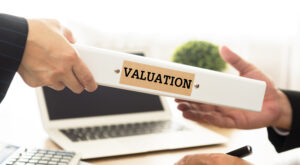The Tax Side of Dealing in Collector Cars

The tax side of dealing in collector cars can be quite interesting. Are you a collector? People collect all kinds of different things, including stamps, art, sports cards, jewelry, coins and cars to name just a few. Speaking of collectors, collectibles can be a great hobby but they can also draw the attention of the IRS, one of the greatest collectors of all time.
Collector Cars Are Not Tax-Free
Cars, particularly classic ones, have always been a popular collectible. However, there several tax issues surrounding collectible cars that you should be aware of. It’s no secret that the IRS loves to make waves with its investigations. Well-to-do car collectors who decide to skimp on their full tax bill are the perfect targets for the IRS to make examples of.
How Much Do You Owe?
So let’s take a look at some of the issues you should know about when collecting cars as well as some tips to make sure you’re paying the proper amount of tax on your collector cars.
Collectible Taxes & Deduction:
- Capital gains tax on collectibles: Ordinarily, capital gains on property that has been held for at least one year are subject to either a 0%, 15% or 20% tax rate depending on your income, however gains on collectibles such as cars are given a special 28% tax rate[1].
- When you sell a collector car you can also write off some of the expenses from your profit and thus lighten the tax burden. Any money you spend to restore or sell the car can be subtracted from your profit. However, make sure you keep good records.
- When it comes to purchasing a collector car, you will also be liable for state sales tax on that car if you drive it away. If you have it shipped somewhere else, then you will have to pay sales tax to the state where you have it shipped.
- One option some collectors try to pursue is to obtain a dealer’s license. This will allow them to avoid any state sales tax altogether. However, be careful, if you are actually a collector and not really a dealer, then you would actually be making a false claim to your state, which could land you in hot water. On top of that, you might have difficulty insuring your vehicles.
More Forms
You will also need to be prepared to fill out additional forms with your tax return when you have capital gains and/or losses. All of the important details of the sale of your vehicle will need to be reported on Form 8949. Then, combined with your capital losses, the information will be put on Schedule D where you will need to tally your net gain or loss.
We hope you found this updated article about the tax side of dealing in collector cars helpful. If you have questions or need expert tax or family office advice that’s refreshingly objective (we never sell investments), please contact us or visit our Family office page or our website at www.GROCO.com. Unfortunately, we no longer give advice to other tax professionals gratis.
To receive our free newsletter, contact us here.
Subscribe to our YouTube Channel for more updates.
Considerately yours,
GROCO, GROCO Tax, GROCO Technology, GROCO Advisory Services, GROCO Consulting Services, GROCO Relationship Services, GROCO Consulting/Advisory Services, GROCO Family Office Wealth, and GROCO Family Office Services.
[1] https://www.irs.gov/taxtopics/tc409#:~:text=Net%20capital%20gains%20from%20selling,at%20a%20maximum%2025%25%20rate.
Tax Strategies Under Obama Tax Plan
Tax Strategies Under Obama Tax Plan Everyone is aware that President-elect Barack Obama has stated his case clearly that there will be a major tax bill for 2009. As our experience shows, a first-term tax law will probably not see passage by both houses until as late as July; however, it is more than likely…
Gift Tax: Tips from the IRS
Gift Tax: Tips from the IRS Taxpayers who have given gifts exceeding $11,000 in value to a single individual must report the total gift amount to the Internal Revenue Service (IRS). The giver may owe taxes on the gifts. The recipient, however, does not have to report or pay taxes on the value of the…
Secondary Market May Impact 409A Valuations
Secondary Market May Impact 409A Valuations An issue gaining attention with respect to 409A valuations is the fact that many private company shares are increasingly being traded in the secondary market. There is a debate among valuation specialists over how transactions in private company stock impact the value of the company securities for 409A purposes.…
Five Tips for Recently Married or Divorced Taxpayers with a Name Change
Here are five tips for recently married or divorced taxpayers with a name change. If you changed your name after a recent marriage or divorce, the IRS reminds you to take the necessary steps to ensure the name on your tax return matches the name registered with the Social Security Administration. A mismatch between the…




